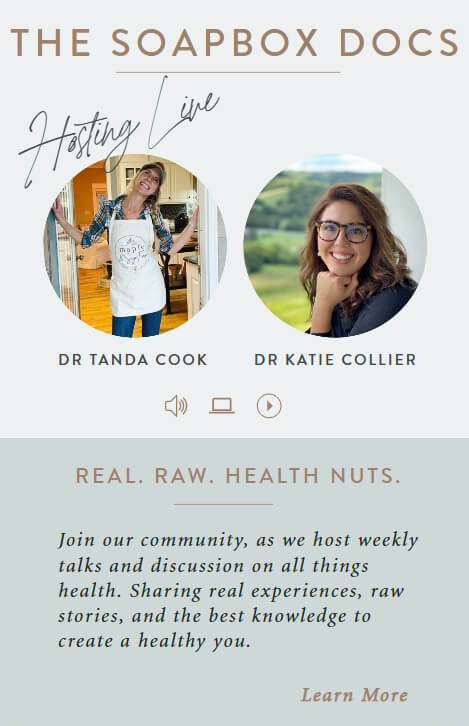You’ve changed, but the scale stays the same?
If you’re eating all the right things, exercising 6 days a week and STILL not losing the weight, raise your hand!
This article is for you.
I hear you. It can be wildly frustrating when you have completely overhauled your pantry, started a workout routine (and are actually sticking to it!), and still not seeing the changes you’d like.
Hear me out.
The body is a complex interconnected system that requires fine tuning over the course of many months and years, depending on your starting point, that will absolutely influence changes in body composition.
You’re told it isn’t that complex, simply eat less and exercise more. But that’s simply not true. There is so much more going on underneath the surface that calorie counting won’t fix.
Before you throw in the towel, ask these questions to help you get to the sticky stuff that’s keeping the weight on.
Are my bugs in order?
You are more bugs than you are body. The human body relies on over 1,000 different species of bugs in the gut to help digest food, make vitamins, communicate with our cells, and directly influence our metabolism.
This system of bacteria is called the microbiome.
And because you live in the western world, I’m guessing your microbiome is a little (or a lot) off kilter.
Like most things in the body the microbiome is influenced by a multitude of factors, see below for some common things I see in practice.
VAGINAL VS. CESAREAN BIRTH
Our very first inoculation of bacteria in the gut comes from the vaginal canal upon birth. If you were a C-section baby, that means you may have missed some important bacteria on the way out.
ANTIBIOTIC USE
Antibiotics are fantastic at killing off harmful bacteria that are causing your earache or sore throat. Unfortunately, they are also awesome at killing off the friendly neighborhood bacteria we require to regulate our metabolism and keep us healthy.
It’s kind of like putting out a fire with a fire hose but not wanting the house to get wet.
It doesn’t work like that.
My guess is most of you have had AT LEAST one round of antibiotics in your lifetime, if not multiple.
If those beneficial bacteria haven’t been replenished through food or supplementation, it’s likely that your microbiome is out of balance.
NOT ENOUGH PREBIOTICS
In order to keep the bugs alive, you have to feed them.
Prebiotics are the food your bugs eat to keep your microbiome thriving.
Prebiotics are complex carbohydrates and resistant starch found in many vegetables and whole fruits. These particular carbohydrates are not digested by you and are left to be gobbled up by the bugs, allowing them to thrive.
Think of it like Miracle-Gro for your microbiome, but better.
Prebiotics are abundant in a whole-foods, vegetable-rich diet. Be sure to fill at least half your plate with vegetables, your gut will thank you!
NOT ENOUGH PROBIOTICS
The same bacteria that line our gut, are the bacteria that ferment foods like pickles, yogurt, and kombucha.
By consuming fermented foods regularly, you can replace the bacteria you’ve lost over the years and help to repopulate the gut.
Fermented foods I love to eat daily:
- sauerkraut
- pickled vegetables
- kombucha
- kefir
- yogurt
Find some that you like and eat a little bit every day.
What’s happening in my environment?
Detox is a buzz word in the health sector right now, but for good reason. Detoxification is a natural process that is happening in the body constantly by organs like the kidneys, liver, lungs, bowels, and skin.
When the body is exposed to toxins, these organs are our life line.
They break down and excrete toxins so that they don’t build up in the body causing disease.
For a variety of reasons, namely the environment and the food we eat, these detox pathways can become overburdened and sluggish.
With modern technology has come modern chemicals. Some 80,000 chemicals have been created since the industrial revolution and you are exposed to many of them day in and day out.
These include plastics, BPA, flame retardants, herbicides, pesticides, fertilizers, food coloring and nameless other additives found in processed foods.
Many of these compounds have been directly linked to weight gain and changes in metabolism, brain function, and hormone production and regulation.
Here are some simple ways to clean up your environment:
DITCH THE PLASTIC
Store your food in glass containers when possible and use reusable bee’s wax covers instead of plastic bags or cling wrap.
DRINK FILTERED WATER
EAT LIVER LOVING FOOD
Beets, citrus, dandelion, leafy greens, asparagus and cruciferous vegetables.
SUPPLEMENTS THAT HELP
Glutathione
N-acetyl cysteine
Milk thistle
Broccoli sprouts
BUY ORGANIC
Check out the “Dirty Dozen” and “Clean Fifteen” lists to help you decide when buying organic is an absolute must, and when you can save some money.
CLEAN OUT YOUR CLEANING CLOSET
Try swapping harsh chemical cleaners for gentler, yet equally effective, alternatives.
This is the recipe I use for a homemade all-purpose cleaner:
In a large spray bottle add 1.5 TBSP distilled white vinegar and 20 drops of your favorite essential oil, fill with water, shake and use as you would any other all-purpose cleaner.
Am I hydrated?
To prevent dehydration, you should be drinking half your body weight in ounces.
For example, if you weigh 150lbs, you should be drinking 75 oz in water daily.
Most people are not getting this amount of water each day and are chronically dehydrated.
You are mostly water, and each and every system in your body requires adequate hydration to function properly.
You care because dehydration slows down metabolism.
Drastically.
It also helps your kidneys detox and keeps your bowels moving. All important in losing weight and staying healthy.
Is exercise the problem?
When you start exercising there are many physiological changes that happen in the body.
Better blood sugar regulation, lower blood pressure, better cognition and brain health to name a few.
You will also build muscle.
Regardless of the type of exercise you are doing, there will be some muscle development. This is referred to as a change in body composition. You will lose adipose tissue, or fat, and gain muscle.
Muscle is much more metabolically active than fat, meaning it requires more calories to keep than fat.
It also weighs more because it is denser tissue.
So, remember the next time you step on the scale, that it’s probably lying to you.
You’ve lost fat, but you’ve gained muscle, which weighs more.
The scale is just one metric to measure change, and not a very good one at that. It does not reflect the change in body composition, improved energy, improved cognition, the decreased risk for chronic disease, and improvements in mood.
My hope is that you throw out the darn thing and focus on how you FEEL in your body, and not about the number on the scale.
It doesn’t mean anything, anyway.



